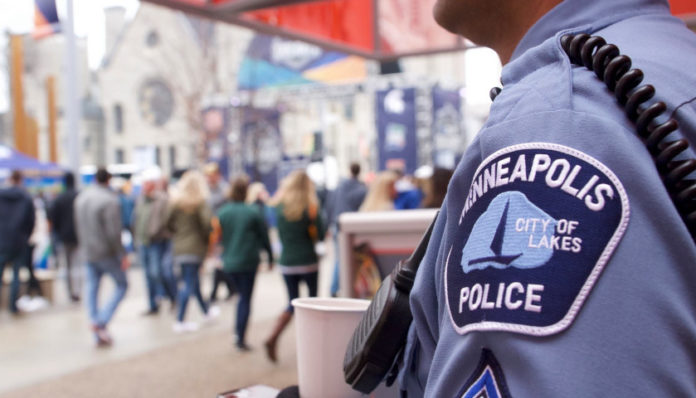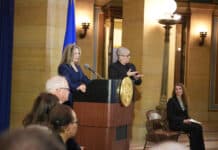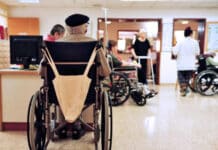Minnesota Gov. Tim Walz signed an executive order Friday afternoon that grants the Department of Health permission to share the addresses of COVID-19 patients with law enforcement agencies.
According to a press release from Walz’s office, the addresses where a positive COVID-19 case has been identified and is still contagious can now be disclosed to 911 dispatchers and first responders. The Department of Health will share the data with the Department of Public Safety, which will in turn pass the data along to first responders.
Department of Health Commissioner Jan Malcolm will be responsible for developing “protocol for the sharing of information while safeguarding patient privacy.”
Walz’s office maintains that the information will be shared in a “very limited fashion” and said the order complies with the Minnesota Government Data Practices Act (MGDPA).
Under that act, the Minnesota Legislature “permitted the disclosure of private health data to the extent necessary to control or prevent the spread of serious disease such as COVID-19,” the executive order states.
“This decision is not taken lightly. We must ensure that this health information is disclosed only to those who have an emergent need to know it, and we must implement safeguards to ensure that no one abuses this data,” Walz said in the order. “Minnesota has a strong tradition of protecting the private data of its citizens. This is reflected in the penalties imposed for unlawful use of private data provided by the MGDPA, which will continue to apply to the data shared under this executive order.”
Only the addresses of people whom the Department of Health has determined to be contagious will be shared. Once an address is no longer associated with a person who is contagious, the Department of Public Safety “must then promptly cause the shared data to be deleted or removed.”
The announcement comes after three Minnesota law enforcement associations wrote to Commissioner Malcolm requesting the locations of positive COVID-19 cases.
“Sadly, each day our associations are receiving more reports of peace officers testing positive for the virus, presenting symptoms of COVID-19 or self-quarantining after coming in contact with Minnesotans on routine calls-for-service,” the groups said in their joint letter. “More troubling perhaps is the fact that law enforcement could have essential healthcare information that would allow them to better prepare for these encounters, limit their exposure to the deadly virus and contain the spread of COVID-19.”
The executive order will remain in effect for the duration of the governor’s peacetime emergency declaration.
– – –
Anthony Gockowski is managing editor of The Minnesota Sun and The Ohio Star. Follow Anthony on Twitter. Email tips to nagubal.tbpxbjfxv@tznvy.pbz.
“Minneapolis Police Officer” by Minneapolis Police Department.


















